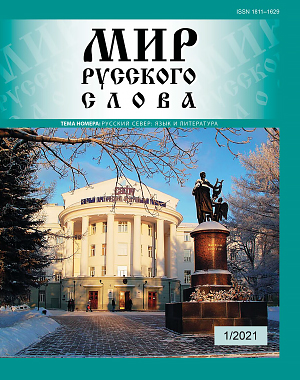Authentic Texts on Sports in Teaching Russian as a Foreign Language: Genre Variability and Linguodidactic Value
DOI:
https://doi.org/10.24412/1811-1629-2021-1-72-78Abstract
The article discusses the possibility of using authentic texts about sports in teaching RFL, analyzes modern linguistic concepts as the basis for the practice of teaching RFL, determines the role of sports discourse in modern communication, describes the linguodidactic potential of authentic texts about sports. It is concluded that the set of topics in teaching RFL, refl ecting the essential aspects of the life of Russian society, should demonstrate to students the diversity of oral and written genres of modern Russian speech and have signifi cant linguocultural potential, which is advisable to identify against the background of correlated information relevant to the native linguistic culture of students. Working with authentic texts about sports, selected taking into account genre and style variability, stratifi ed in accordance with the requirements for the levels of Russian language profi ciency and equipped with a system of communicatively oriented tasks (including games), allows students to master not only thematic nominative and emotionally evaluative linguistic means, but also to use them in emotional situations related to sports, taking into account Russian behavioral norms, which contributes to the formation of Russian communicative competence in foreigners, including its emotional and emotive components.
Keywords:
authentic texts, sports, Russian as a Foreign language, genre variability, linguodidactic value
Downloads
References
Иванова и др. 1999а — Иванова Т. А., Попова Т. И., Рогова К. А. и др. Государственный образовательный стандарт по русскому языку как иностранному. Второй уровень. Общее владение. М.–СПб.: Златоуст, 1999.
Литература
References
Downloads
Published
How to Cite
Issue
Section
License
Articles of "The World of Russian Word" are open access distributed under the terms of the License Agreement with Saint Petersburg State University, which permits to the authors unrestricted distribution and self-archiving free of charge.




